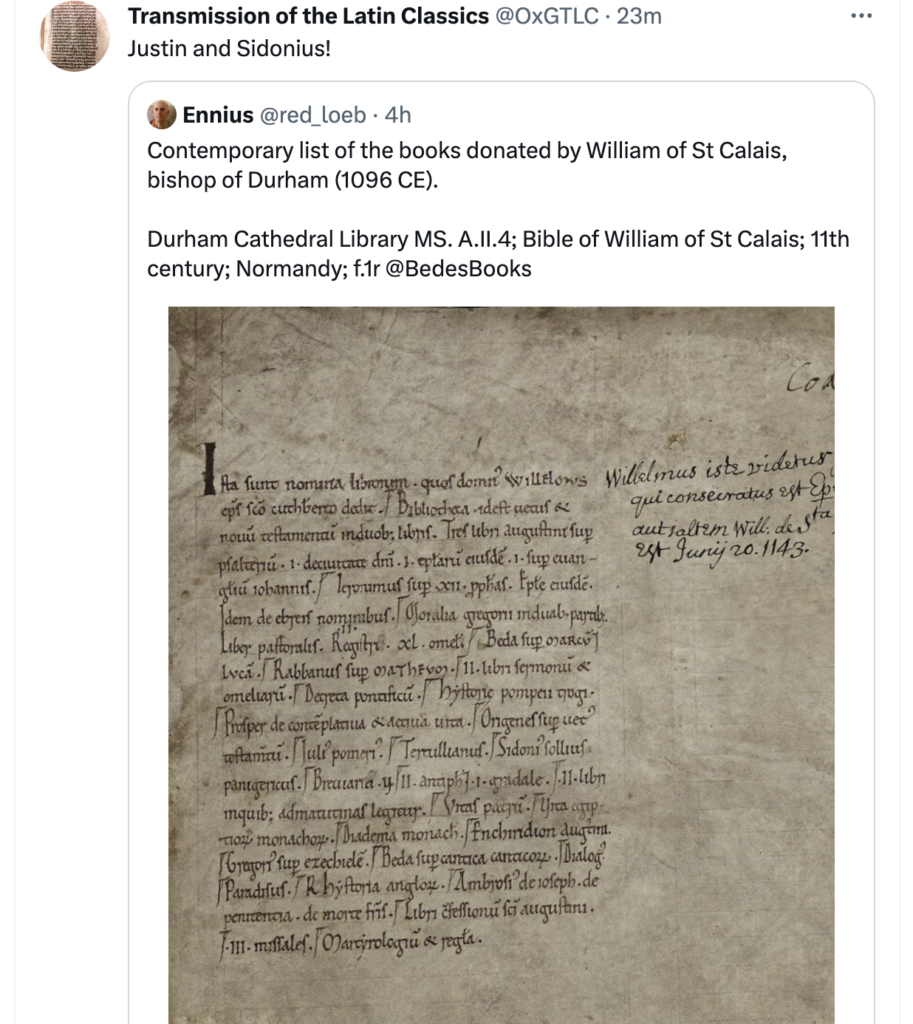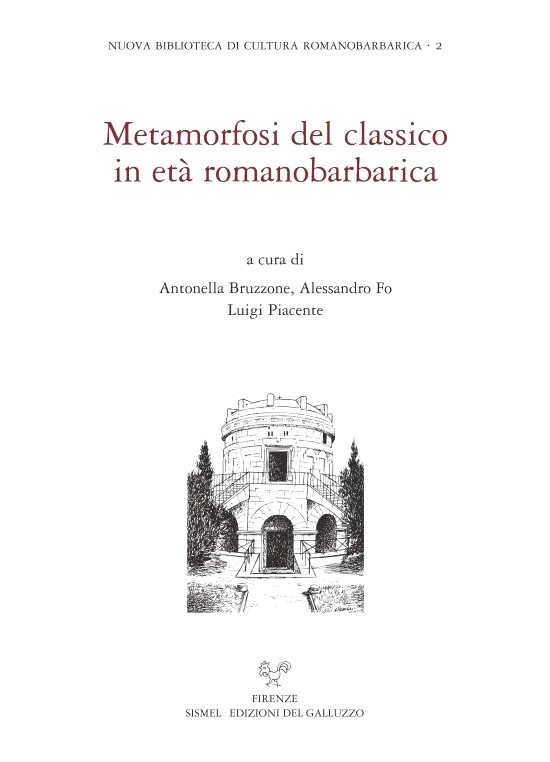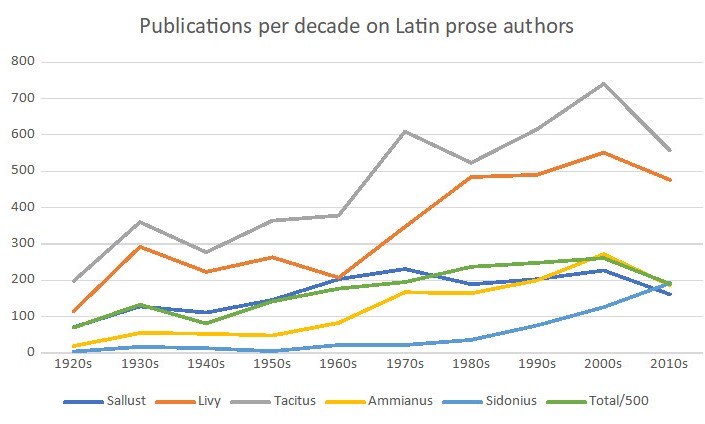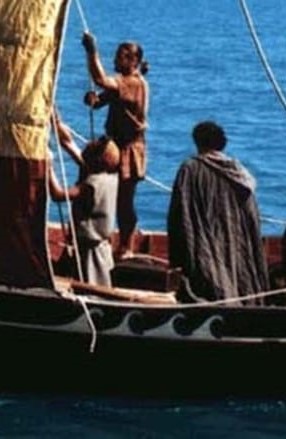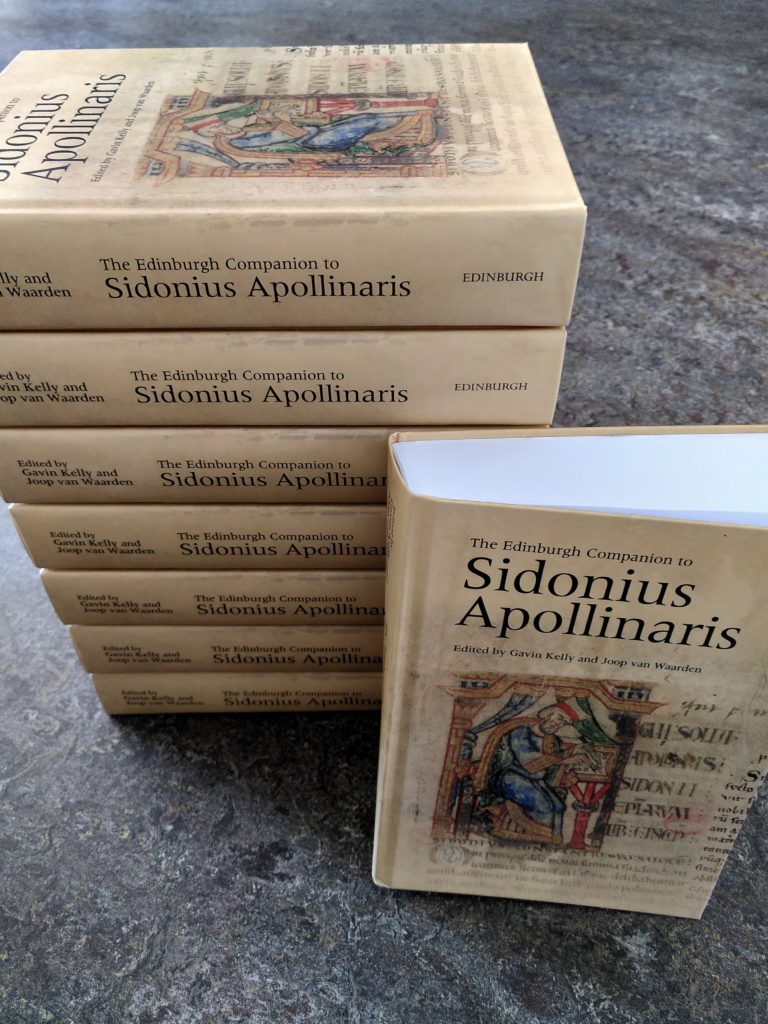Gavin Kelly wrote a blogpost on the manuscript transmission of Sidonius in England, following up on a tweet concerning the Durham Bible of William of St Calais (1096 CE) and the list of manuscripts it contains, which mentions a copy of Sidonius’ ‘panegyrics’ among others (see also on this website). William’s Sidonius manuscript is a typically English representative of manuscripts containing Sidonius’ poems without the letters.
On 5 February ‘Ennius’ (@Red_Loeb) shared an image from a Durham manuscript, Cathedral Library A.II.4, the bible of William of St Calais, bishop of Durham, from AD 1096. This bible is said to originate in Normandy, like its owner. On f. 1v there is a list of the books that the bishop gifted to the library. In a retweet, my friend and colleague Justin Stover (‘Transmission of the Latin Classics’ = @OxGTLC), pointed out that it contained references to the works of Justin and Sidonius. Sure enough, two thirds of the way down you can see a paragraphus sign (¶) followed by Sidonius Sollius Panigericus. …
Read on here
Gavin Kelly has put out the first ever edition of the paratexts of Sidonius’ panegyrics and carmina minora: ‘Titles and Paratexts in the Collection of Sidonius’ Poems’, in: Antonella Bruzzone, Alessandro Fo and Luigi Piacente (eds), Metamorfosi del Classico in età romanobarbarica, Nuova biblioteca di cultura romanobarbarica 2, Florence: Sismel–Galluzzo, 2021, 77-97.
Info volume here
Gavin Kelly published a blogpost titled ‘A textual and onomastic problem in Sidonius’:
In modern editions, Sidonius’ letter 2.4 is addressed to an otherwise unknown Sagittarius, who is asked to accept the friendship of Sidonius’ protégé Proiectus (also otherwise unknown) as the latter seeks to make an advantageous marriage with a girl of good family for whom Sidonius’ addressee has some sort of role of guardianship following her father’s death. But editions up to that of Lütjohann in 1887 had the letter addressed not Sidonius Sagittario suo salutem but Sidonius Syagrio suo salutem. Syagrius (or to be precise Siagrius) is the reading of the family of manuscripts from which the first edition of 1474 derived. Sagit(t)arius appeared in the majority of the manuscripts picked out by Lütjohann.
How to weigh up the contradictory evidence of the manuscripts?
Read on in Gavin’s blog
Gavin Kelly has resumed his ‘Ausonius’ blog with posts on ‘A variation on prose rhythm: verse in prose’, and on ‘Surges of interest’ in which he finds that Sidonius studies are indeed booming.
Gavin Kelly has contributed with ‘Sidonius as a Reader of Rutilius Namatianus’ to the Festschrift for Marisa Squillante, Rossana Valenti and Concetta Longobardi (eds), DISSONA NEXIO. Rotte del sapere, tra storia e futuro per Marisa Squillante, Invigilata Lucernis 42 (2020) 151-61.
Volume ToC here
The Edinburgh Companion to Sidonius Apollinaris and all of its 850 odd pages are out and there for everybody to enjoy. Don’t miss the 30% off discount voucher on this website.
Professor Gavin Kelly will deliver his inaugural lecture on 'Late Roman History and Latin Philology'. The study of the classical world is unusually dependent on philology, the close study and interpretation of works of literature – something which helps to explain the interdisciplinary nature of the discipline of Classics. The lecture argues from a range of examples that this is even more the case for the later Roman empire than the rest of Graeco-Roman Antiquity, that recent scholarly developments make the present a particularly good time to study philology, especially late antique philology, with benefits for our understanding of the broader history of late antiquity".
The lecture will be followed by a drinks reception - all welcome.
Read more

